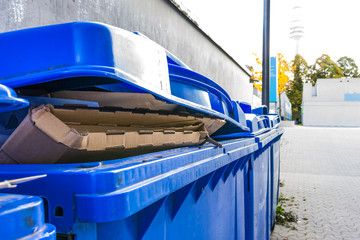By Carly Campbell
Both at the University of Montana and St. Patrick’s Hospital, those with an interest in sustainability come together often to discuss the issues facing their institution. In conference rooms, dining areas, and hallways with chairs pulled together, they are meeting.
A hospital and a university campus share a surprising number of challenges when it comes to green-collar work. Both places have a large staff, serve a population (either students or patients), and have countless internal departments that help the beast run as effectively as possible. But are they all running as energy efficient, environmentally conscious, and sustainably as possible? The challenge is this: how do we engage these populations? What images, messages, and education works best to get across the importance of green health and daily green action? How do we combat basic human apathy?
I wonder about that word, apathy. It is most evident when I spend time with the UM recycling team and St. Pat’s Global Partnership bins.
At UM, we drive around campus in a weary facilities truck, picking up the big blue recycling bins hidden in the basements and entry ways of each building. Materials are separated by how they will need to be processed at the facility –paper, plastic, cardboard, etcetera. The bins are all lined up in a row and clearly labeled. Yet, inevitably at every stop the team has to spend a long time digging through and re-sorting the materials. Some students seem to think that all the labels say “Trash.” Perhaps some don’t realize that the waxy gloss on magazines means they have to be recycled differently than basic white copy paper. Across the board, everyone seems to think that the mixed paper-plastic coffee cups are recyclable (they are not). Contaminates like coffee cups are a problem, as the recycling facility will not accept anything with more than a 10% contamination rate. This means that basic human apathy sends several tons of recyclable materials straight to the landfill.
At St. Pats, recycling is even more complicated. Besides paper and plastic, the hospital also collects for Global Partnership. The program started a couple years ago – nurses are trained to grab a kit of items, which they bring to a patient’s room (bandages, dressings, gloves, IV sets, tubes, swabs, pads, tapes,etc.). However, not every patient needs all of those items; before, most were just trashed. There are now bins in the unit where nurses are encouraged to put clean, unopened medical items. These are sent to a facility where they are packaged up, and sent to partnered medical institutions around the world for re-use. As the Energy Corps member, I am the one who wanders into the units to collect, weigh, and package these bins for the program. And again, the amount of plain trash, unsterile instruments, open packages, and entirely wrong items in these bins is staggering.
I know that hospitals and universities are busy places. Each person is getting through the day on their own agenda. These spaces naturally host exhausted schedules, whether students are rushing to class or nurses are rushing to patients. Stressed people are not going to think long about which bin their can of soda or unused sanny wipe is going. But even in a quiet moment, recycling is not the priority of everyone – regularly people drop their trash in whatever bin is closest and easiest, where it disappears from their sight forever. I wonder how these students and teachers, nurses and doctors, can ignore one health issue while being fervent about others. This is not an apathetic population – clearly we are all passionate people here. But, it is a disengaged one.
At some point I think the shoe must drop to the other foot, and it is on our feet that it goes. In those meetings in conference rooms and dining halls, that constant challenge comes up again and again – how do we engage? We must be asking that question because we believe that every person has the potential to care, and hold sustainability as a more personal priority. All of the Green projects I am tackling with Energy Corps are based in that solid assumption.
Over the coming service term, I look forward to exploring the answers to some of the rhetoric in this post. Though the work to be done is staggering, even a small step forward will be worthwhile in tipping the scales. If we can get the bins out there, have them properly labeled and easily accessible; if people are educated and given resources about these issues, things will improve.








